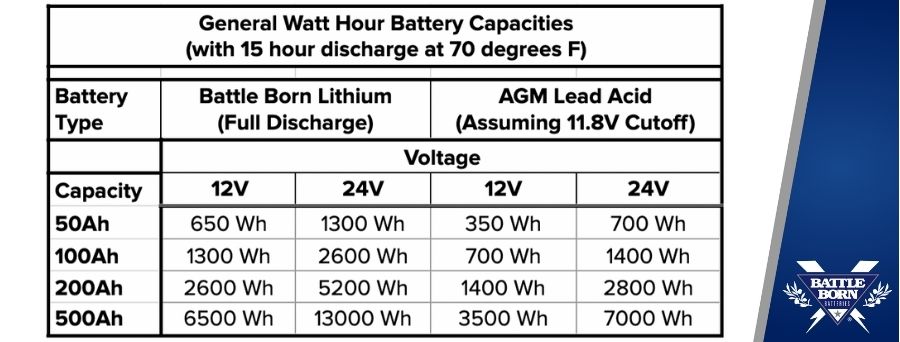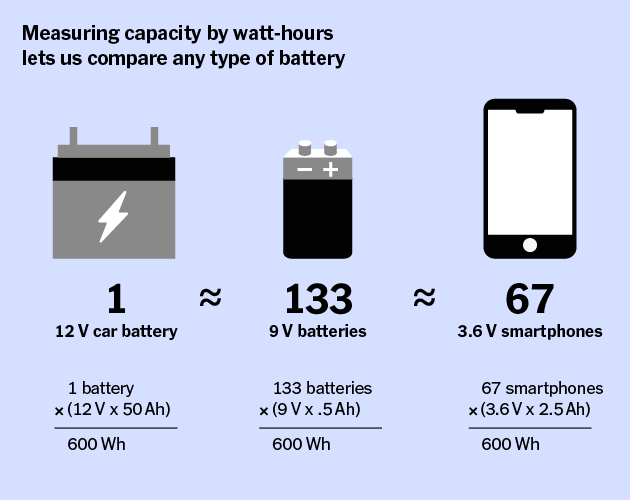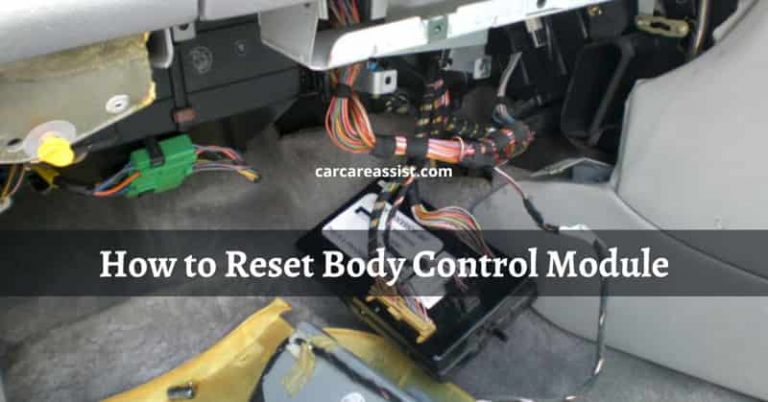How Many Watt Hours is a Car Battery: Understanding Power Capacity
Car batteries are crucial for starting the engine and powering electrical systems. They come in various sizes and types, each with different capacities. A standard car battery usually offers 12 volts and varying amp-hour ratings, which translate to watt-hours, a measure of energy storage.
Understanding watt hours helps gauge how long a battery can provide power. This knowledge is useful for maintenance and replacement decisions. Always check the battery specifications for accurate watt-hour ratings. Proper care extends battery life, ensuring reliable vehicle performance.
Introduction To Car Battery Power
Car batteries provide the power needed to start the engine, as well as the lights and other electrical systems. They store energy in the form of chemical energy, which is converted to electrical energy when needed. The battery also helps to stabilize the car’s voltage.
Power capacity in a car battery is measured in watt-hours. This measures how much power the battery can deliver over time. A higher watt-hour rating means a longer-lasting battery. This is crucial for starting the engine in cold weather and ensuring the smooth operation of electrical systems.
Basics Of Watt Hours
Understanding watt hours helps gauge a car battery’s capacity. Typically, a car battery ranges from 45 to 75 watt hours. This measure reflects the energy stored and available for use.
Definition Of Watt Hours
Watt hours measure the amount of energy a battery can store. One watt-hour means the battery can supply one watt of power for one hour. Car batteries often have a capacity of watt-hours. This helps you know how long the battery will last.
Difference Between Watts And Watt Hours
Watts measure the rate of power. Watt hours measure the total energy used over time. A car battery’s power is shown in watts. Its energy capacity is shown in watt hours. For example, a 100-watt battery used for 2 hours uses 200-watt hours.
Car Battery Types
Car battery watt-hours typically range from 400 to 800, depending on the battery type and capacity. Understanding these variations helps choose the right battery for your vehicle’s needs.
Lead-acid Batteries
Lead-acid batteries are the most common car batteries. They are affordable and reliable and have been used for many years. Lead-acid batteries come in different sizes. Their watt hours can range from 20 to 60, depending on the type and size of the battery. These batteries are heavy and need maintenance. You have to check the water levels often. They are also affected by temperature changes. Cold weather can make them less efficient.
Lithium-ion Batteries
Lithium-ion batteries are newer and more efficient. They are lighter than lead-acid batteries and can store more energy. Their watt hours range from 100 to 200. Lithium-ion batteries last longer and do not need much maintenance. They are more expensive and are used in electric cars and hybrids. Lithium-ion batteries are also safer. They do not leak or spill, and they work well in all weather conditions.

Calculating Watt Hours
To calculate watt hours, use the formula Watt Hours (Wh) = Amp Hours (Ah) x Voltage (V). This formula helps find the energy stored in a battery. Amp hours measure the battery’s capacity, while voltage indicates the electrical potential. Multiply these two values to get watt-hours.
A car battery has a capacity of 50 Ah and a voltage of 12 V. Using the formula 50 Ah x 12 V = 600 Wh, the battery stores 600 watt hours of energy. Another example is a battery with 80 Ah and 12 V. Calculate it as 80 Ah x 12 V = 960 Wh, which means the battery has 960 watt hours.
Factors Affecting Power Capacity
A new car battery has more power, while an old battery loses its power over time. The condition of the battery also matters. A clean battery works better, while dirt and corrosion reduce power. Keeping the battery in good shape helps, and regular checks are important.
Cold weather reduces battery power. Batteries work best in warm conditions. Extreme heat also harms the battery. Keeping the battery at a moderate temperature helps. Using a battery heater in winter can help. In hot climates, keep the car in the shade.
Comparing Car Battery Capacities
Standard car batteries usually have a capacity of 45 to 60 amp hours. This means they can deliver one amp for 45 to 60 hours before running out. High-capacity batteries, on the other hand, can go up to 100 amp hours or even more. These batteries are often used in larger vehicles or those with more electronics.
A higher-capacity battery can provide more power for longer periods. This is especially useful in cars with many accessories, where a standard battery might struggle to keep up with high demands. High-capacity batteries are also heavier and more expensive, but they offer better performance and reliability.
A car with a high-capacity battery will start more reliably, especially in cold weather. It will also handle more electronic devices, which means better performance for your car stereo, GPS, and other gadgets. Standard batteries can sometimes fail to deliver enough power, causing issues.
Choosing the right battery for your vehicle is important. It ensures all systems run smoothly. High-capacity batteries are often the best choice for modern cars. They offer better performance and longer life, but they also come with a higher price tag.
Real-world Applications
Car batteries power essential vehicle functions, typically providing between 400 to 800 watt hours. This energy capacity supports starting the engine and running electrical systems.
Electric Vehicles
Electric vehicles need high-capacity batteries, often 60,000 to 100,000 watt-hours. This large capacity helps them run for long distances and power many functions. Electric cars use these watt-hours to run motors, lights, and other electronics. This high energy storage helps them compete with gasoline cars.
Hybrid Vehicles
Hybrid vehicles use smaller batteries, usually 1,000 to 2,000 watt hours. They combine gas engines with electric motors, which means they need less battery power. These cars use the battery for short trips and low speeds, while the gas engine kicks in for longer trips. This combination helps hybrids save fuel and makes them more efficient than regular cars.

Maintaining Optimal Battery Performance
Keep the battery terminals clean. Dirt can cause problems. Check the water level in the battery. Fill it if needed. Always use distilled water. Inspect for corrosion around the terminals. Clean with a baking soda solution. Ensure the battery is secure in its tray. A loose battery can get damaged. Test the battery voltage regularly. Use a voltmeter for this task. Recharge the battery if the voltage is low. Always turn off the car’s lights when not in use. This prevents battery drain. Keep the battery fully charged for a longer life.
A car takes longer to start. Headlights are dimmer than usual. Clicking sound when turning the key. Dashboard warning lights come on. Strange smells from the battery. The battery case looks swollen. Corroded connectors are visible. The battery is older than three years. Voltage readings are low. Frequent jump-starts are needed. These signs mean it’s time to replace the battery.
Future Trends In Car Battery Technology
New battery chemistries are being developed. These promise longer life and faster charging. Solid-state batteries are one example. They are safer and more efficient. Lithium-sulfur batteries can store more energy. This means longer driving ranges. Research is ongoing to improve these technologies.
Future car batteries will have higher watt-hour capacities, which means cars can travel further on a single charge. Battery capacity could double in the next decade, making electric cars more popular. Energy density is also expected to improve. Smaller batteries will hold more power, reducing the weight of electric cars.

Frequently Asked Questions
What Is The Watt Hours Of A Car Battery?
A car battery typically has 400 to 600 watt hours.
How To Calculate Car Battery Watt Hours?
Multiply the battery voltage by its amp hour rating.
Can Car Batteries Power Household Appliances?
Yes, with an inverter, car batteries can power small household appliances.
How Long Can Car Battery Last?
A car battery generally lasts 3 to 5 years.
Do Electric Cars Use The Same Batteries?
Electric cars use larger, high-capacity batteries compared to regular car batteries.
Is Car Battery Watt Hours Important?
Yes, watt hours indicate the energy storage capacity of the battery.
Can I Increase My Car Battery Watt Hours?
No, you need to replace it with a higher capacity battery.
Conclusion
Understanding the watt hours of a car battery is essential for vehicle maintenance. It helps ensure your car runs smoothly. Keep track of your battery’s capacity to avoid unexpected breakdowns. Always consult your vehicle’s manual or a professional for specific details.
Stay informed and keep your car in optimal condition.






